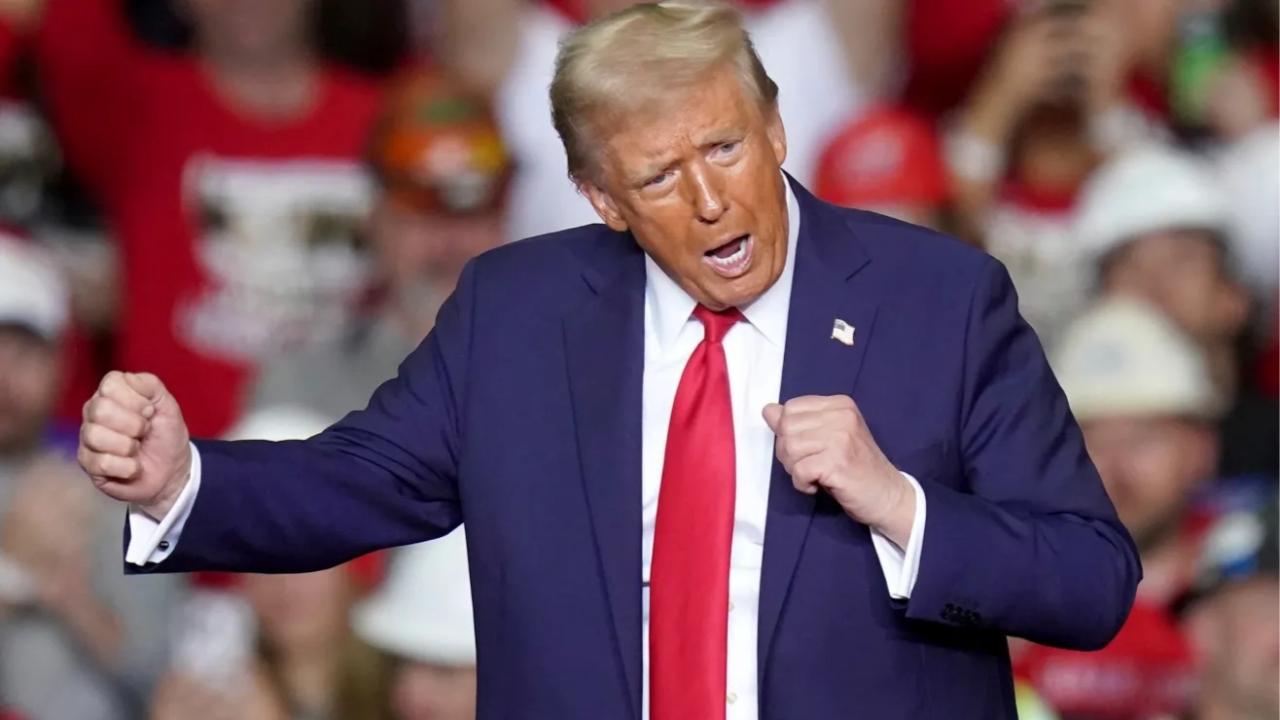Republican Donald Trump was the winner of the election held on November 5 in the United States. The tycoon prevailed over the Democrat and current Vice-president Kamala Harris in key states, and even in Miami-Dade County, considered a Democratic stronghold, and home to many Latino immigrants, including Cubans.
Economist Emilio Morales, political scientist Juan Antonio Blanco, lawyer Roberto Veiga and activist Omar López Montenegro spoke to Diario de Cuba about what Trump's return to the White House could mean for the island
"Hope dawns for Cubans"
Emilio Morales, president and CEO of the Havana Consulting Group, based in Miami, was categorical in expressing what, in his view, Trump's return will bring: "the end of the dictatorships of Cuba and Venezuela."
"This was a landslide, like Reagan's victory in the '80s. If Reagan knocked down the Berlin Wall, Trump will knock down the Havana Wall," the economist predicted.
"Hope dawns for Cubans," he said. "Trump's victory shows that it can be done. Despite the obstacles, it can be done."
"Today they're mourning in Havana"
According to Juan Antonio Blanco, president of Cuba Siglo XXI, the triumph of the Republican candidate is confirmation that "the American communications establishment, politicians, and academics have lost touch with reality and do not know how to read the hearts and minds of the different sectors of American society."
"The Democratic Party went astray quite some time ago, when a radical left minority began to redesign it to build it as a party comprised of minorities. And it has discovered that there are large majorities, including young people, who they thought were on board, but who simply do not agree with its philosophy, its creed and its vision of the country and the world," said the Cuban political scientist.
"As far as Cuba is concerned, I am sure that today they're mourning in Havana, they're mourning in Tehran, they're mourning in Caracas, and they're mourning in Managua. They must be trying to see what they are going to do, especially in the case of Havana, when they are facing a terminal crisis, a crisis of complete collapse of the system; when the Russians cannot come to their rescue; when the Chinese are more concerned now with the new president than with saving a government that does not pay its debts, and all that is good for the cause of democracy in Cuba and good for the cause of human rights and freedom," says Blanco.
"It remains to be seen what Havana will do"
According to Roberto Veiga, director of Cuba Próxima, a center for studies on the rule of law, whether Trump adopts a position of confrontation or negotiation with respect to Havana could depend on the island's authorities.
The lawyer stressed that Trump won the elections "with significant support" and believes that he will begin "an administration with political logics that will impact the modus vivendi of the whole world, not only of the United States."
"With Cuba, with its government, perhaps he will maintain the usual position; that is, one of confrontation, even extreme, while, at the same time, being willing to negotiate," says the director of Cuba Próxima.
"In 2017, after announcing the confrontation with the Cuban government in Miami, Trump sent a message to Havana that he could change his position if the Cuban government fully allowed private enterprise, extended Internet service to society, and incorporated the real election of deputies based on some form of nomination that the Cuban regime could accept. Havana, for its part, did not comply with that request," the lawyer pointed out.
"Now, according to public statements by his team, Trump might offer something similar again, although this time with the following demands: unconditional release of political prisoners, holding democratic elections, and abandoning efforts to influence the politics of Latin American countries. That is, perhaps it is in the hands of the Cuban Government whether the White House will decide on confrontation or negotiation. "It remains to be seen what Havana will do," Veiga said.
"The Cuban problem is a product of the relationship between the regime and the citizenry"
Unlike his compatriots, activist Omar Lopez Montenegro does not believe there will be "substantial changes in the relationship with the regime" due to Trump's return to the US presidency.
"Trump was already in power for four years and, beyond certain measures in relation to migration, travel and remittances, there were no significant changes in the relationship between the dictatorship and the elected governments in the United States," Montenegro said.
According to the activist, "to believe that the possibility of a change to democracy in Cuba hinges on the election of one party or another in the United Statesis to subscribe to the regime's narrative that the problems on the island are a consequence of the Cuba-United States stand-off."
"The Cuban problem is a product of the relationship between the regime and the citizenry, and can only be essentially changed through the actions of Cubans, not any foreign government, as the historical evidence shows," he said.
